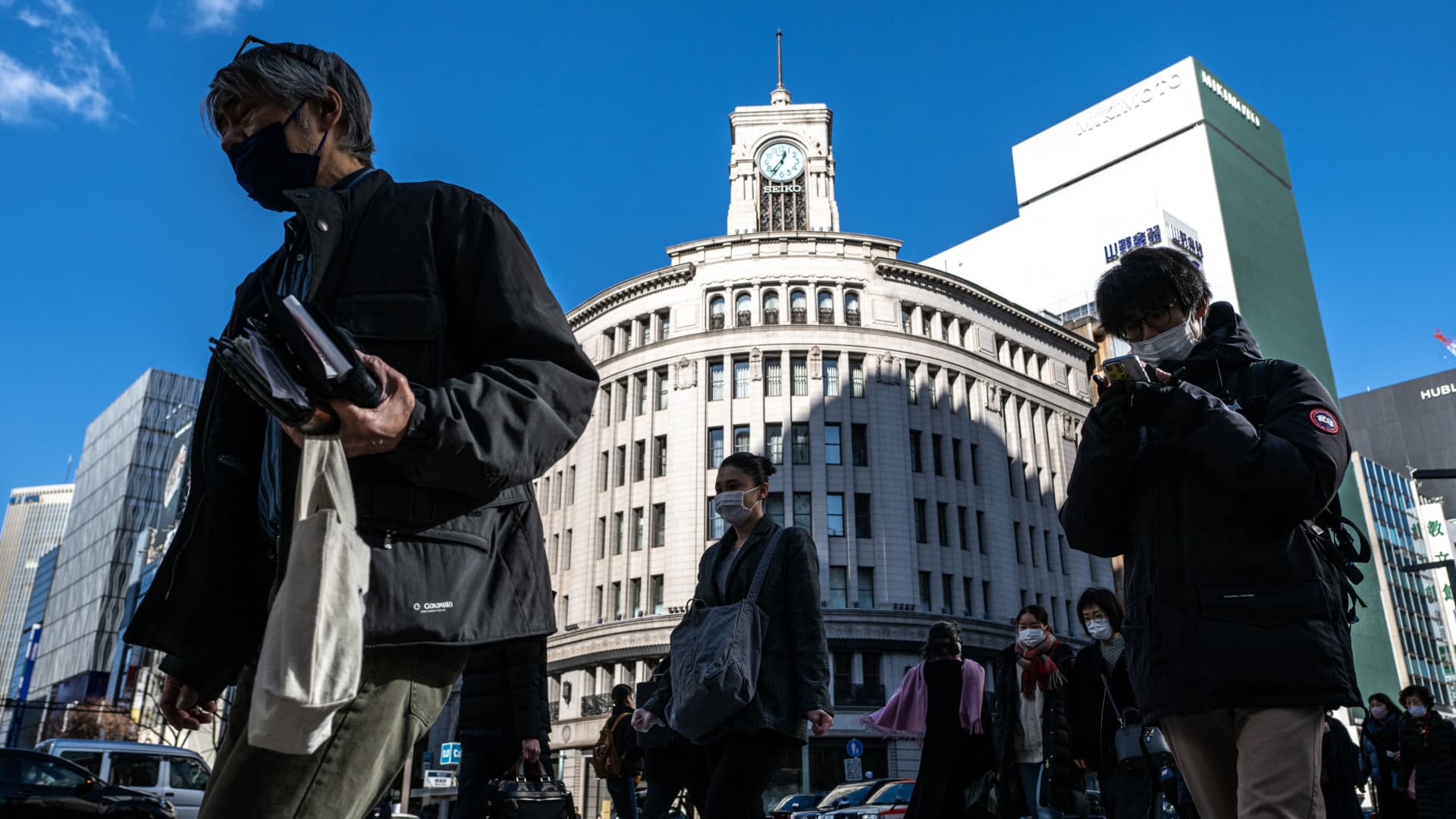People cross a street in Tokyo’s Ginza district. The Bank of Japan left its monetary policy unchanged on Wednesday.
Philip Fong | Afp | Getty Images
The Japanese yen pushed higher against both the euro and U.S. dollar on Friday after a Nikkei report said Kazuo Ueda would be appointed as the Bank of Japan’s next governor.
Economist Ueda is a former member of the central bank’s policy board.
He replaces Haruhiko Kuroda, whose term started on 20 March 2013 and will end on 8 April 2023. Kuroda has overseen the BOJ’s policy of ultra-low interest rates while other major central banks have been hiking to tackle inflation.
The yen fell to more than 20-year lows against the U.S. dollar in 2022 on interest rate differentials and as investors flocked to the safe haven of the dollar due to market volatility. Though a weaker yen is generally seen as a pro to Japanese policymakers as they try to stimulate inflation, the extent of the depreciation and price pressures on consumers have forced several interventions to shore up the currency.
Kuroda has also defended the BOJ’s yield curve control policy, which keeps its tolerance range for the yield in a narrow range. The BOJ jolted global markets in December when it widened the yield on the 10-year Japanese government bond (JGB) to move 50 basis points either side of its 0% target, up from 25 basis points.
On Tuesday the government will officially nominate Ueda, along with BOJ Executive Director Shinichi Uchida and former chief of the Financial Services Agency Ryozo Himino as deputy governors, Nikkei reported.
Jane Foley, head of FX strategy at Rabobank London, said Ueda had not been considered a leading candidate by many BOJ watchers.
“While the market is reacting to the fact that the new Governor is not [Bank of Japan Deputy Governor Masayoshi] Amaniya – a known dove, we suspect that the policies of the BoJ will not be all that different going forward,” she told CNBC in emailed comments.
“The BoJ has been attempting to nurture inflation and whilst conditions are building to allow for some reduction of stimulus, there is unlikely to be an aggressive change.”
Amamiya was approached for the job and turned it down, according to the Nikkei report.

US dollar vs Japanese yen.
“Ueda seems a very different type from Kuroda, in terms of being an academic who would plainly conduct policy based on actual economic fundamentals and value conversations with the market,” said Hiroaki Muto, an economist at Sumitomo Life Insurance Co., in a note published by Reuters.
However, Muto added, he may not be a “super hawkish type” – so any “normalization” would take place very slowly.
(Except for the headline, this story has not been edited by PostX News and is published from a syndicated feed.)

